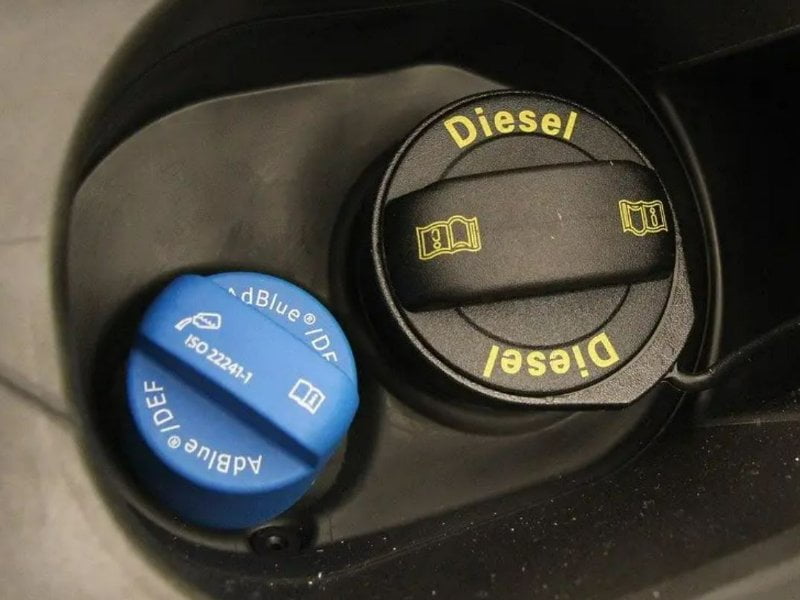The Industry department has handed a another $1.6 million to a global consultancy to try and solve Australia’s AdBlue problem, as a looming shutdown of the only domestic production facility threatens to dry up supplies for the second year running.
Late last year Australia narrowly avoided running out of AdBlue, the diesel exhaust fluid needed to keep newer diesel cars and trucks’ emissions within legal limits, after a global shortage of key ingredient urea.
The federal government sought to diversify Australia’s international supplies and gave Incitec Pivot Limited – the only Australian manufacturer to make AdBlue from urea melt – $29.4 million to ramp up its production.
The company obliged, working around the clock to produce over three million litres of AdBlue a week by January, an 800 per cent increase on its usual production and enough to meet around 75 per cent of Australia’s requirements. Stock levels returned to normal, with the immediate AdBlue crisis averted.
However, Incitec Pivot Limited has told investors it intends to close its Gibson Island Plant where the increased production is occurring later this year, and the government subsidy did nothing to change the shutdown plans, which InnovationAus.com has confirmed remain in place.

The federal government has acknowledged the increased production through Incitec Pivot Limited is a temporary measure and has established an AdBlue taskforce of industry leaders and Australia’s Chief Scientist to address future supply restraints, increasing other local manufacturing options and alternative international supplies.
The taskforce is yet to make a public statement or recommendation.
Private consultancies have also been handed lucrative contracts for their input.
McKinsey was paid more than $12,700 a day over three months through a three-month contract with the Industry department that ended in March, totalling over $1 million.
Another lucrative contract has now been awarded to Boston Consulting Group (BCG), but the Industry department insists the US consultancies work is distinctly different.
McKinsey’s now concluded work was on “data modelling and technical expertise on supply chains” to support the Government and industry in addressing the critical supply issues, a spokesperson for the Department told InnovationAus.com.
“Utilising McKinsey’s expertise allowed the department to undertake additional modelling to assist industry and government to account for potential future supply chain disruptions AdBlue supplies,” the spokesperson said. “This work included working with industry to build and model future scenarios, based on industry intelligence and market updates (e.g. incoming AdBlue shipments) and inform planning and logistics decisions.”
BCG was awarded its $1.6 million contract three days before the McKinsey’s finished. BCG will be looking to enhance long-term security and domestic supply.
“The Department of Industry, Science, Energy and Resources engaged Boston Consulting Group to provide expert advice and economic modelling on options to enhance security and domestic supply of [diesel exhaust fluid],” the spokesperson said.
The spokesperson declined to say how many BCG staff would be working on the project or what specific advice it intends to provide.
The BCG contract, listed only as being for “professional advice” is paying the US consulting giant more than $14,000 each day until the end of June.
Last week Industry Department officials told a Senate Estimates hearing that the Incitec Pivot Limited production was still meeting around 80 per cent of Australia’s AdBlue supply needs, with imports making up the rest.
An upcoming urea facility in Western Australia run by Perdaman Chemicals and Fertilisers was also floated as a new supplier of the technical grade urea needed to make Adblue.
The Industry Department’s Modern Manufacturing Strategy general manager Nick Purtell said this may be possible but it was too early to say because the plant is several years away from operation and is focused on urea for fertilisers.
“I believe they are investigating the possibility of either producing technical-grade urea or supplying urea to others who would do that conversion process,” Mr Purtell said.
“It is possible to convert very good quality agricultural-grade urea—sometimes we call it industrial-grade urea—into [technical grade urea], it’s not straightforward and no-one does it in Australia at the moment.”
Do you know more? Contact James Riley via Email.

